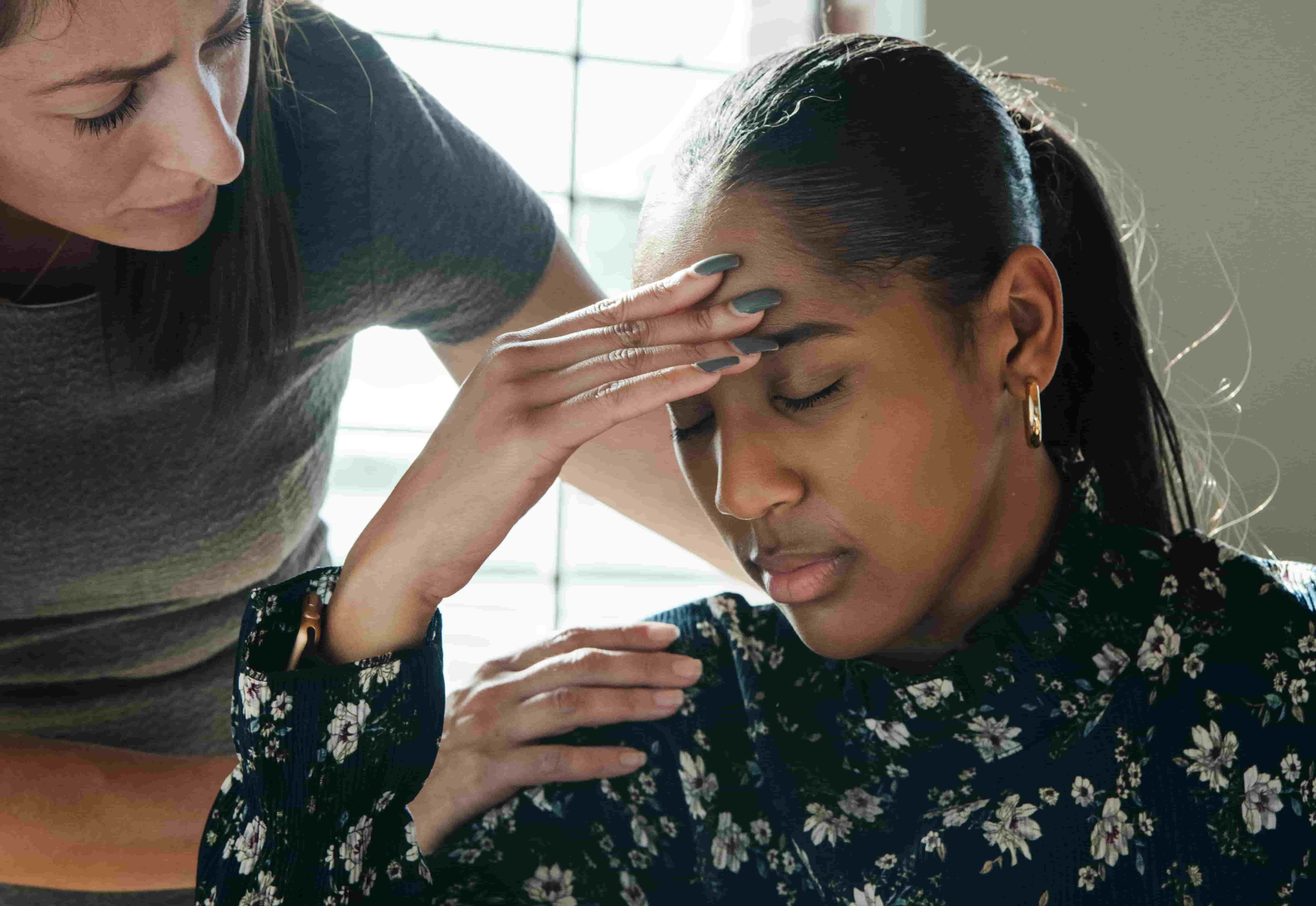Mental Health Tips
Maintaining good mental health begins with simple yet impactful habits. Incorporate these tips into your daily routine:
- Practice gratitude: Reflect on positive aspects of your life daily.
- Stay active: Exercise releases endorphins, boosting mood and reducing stress.
- Get enough sleep: Adequate rest supports cognitive function and emotional stability.
- Stay connected: Build and maintain supportive relationships with friends and family.

Anxiety Management Techniques
Anxiety can be overwhelming, but effective management techniques include:
- Deep breathing exercises: Practice diaphragmatic breathing to calm the nervous system.
- Progressive muscle relaxation: Tense and release muscle groups to alleviate physical tension.
- Cognitive behavioral techniques: Challenge and reframe negative thought patterns.
- Limit caffeine and alcohol: These can exacerbate anxiety symptoms.
Depression Support
For those experiencing depression, seeking support and implementing coping strategies are essential:
- Therapy: Cognitive-behavioral therapy (CBT) and interpersonal therapy (IPT) are effective treatments.
- Medication: Antidepressants prescribed by healthcare providers may alleviate symptoms.
- Support networks: Join support groups or engage in online communities for shared experiences and encouragement.

Stress Relief Strategies
Manage stress effectively with these strategies:
- Time management: Prioritize tasks and delegate when possible.
- Relaxation techniques: Practice mindfulness, meditation, or yoga.
- Engage in hobbies: Pursue activities that bring joy and relaxation.
- Set boundaries: Learn to say no and prioritize self-care.
Coping with Mental Illness
Coping with mental illness involves understanding your condition and seeking appropriate support:
- Educate yourself: Learn about your diagnosis and treatment options.
- Build a support system: Lean on friends, family, or support groups for emotional support.
- Develop a crisis plan: Identify coping strategies for challenging moments.
- Stay engaged in treatment: Consistency in therapy and medication is crucial.

Therapy for Mental Health
Therapy offers a safe space to explore thoughts, emotions, and behaviors:
- Types of therapy: Choose from CBT, psychodynamic therapy, or mindfulness-based approaches.
- Find the right therapist: Consider expertise, approach, and comfort level.
- Online therapy options: Access therapy remotely for convenience and accessibility.
Mental Well-being Resources
Access resources for mental health support and information:
- National Alliance on Mental Illness (NAMI): Offers education, support groups, and advocacy.
- Crisis hotlines: Immediate support during mental health emergencies.
- Online resources: Websites and apps providing information and tools for mental well-being.
Self-care Practices
Prioritize self-care to nurture mental and emotional well-being:
- Establish a routine: Maintain structure and consistency in daily activities.
- Practice self-compassion: Treat yourself with kindness and understanding.
- Disconnect: Take breaks from screens and social media.
- Engage in activities you enjoy: Read, paint, cook, or spend time in nature.
Mental Health Awareness
Increase awareness and reduce stigma surrounding mental health:
- Educate others: Share accurate information and personal experiences.
- Advocate for mental health policies: Support initiatives that promote mental health care access.
- Participate in awareness campaigns: Join events or campaigns to raise visibility.
Mindfulness Exercises
Mindfulness promotes present-moment awareness and reduces stress:
- Meditation: Practice mindfulness meditation to cultivate awareness and focus.
- Body scan: Scan your body for sensations, promoting relaxation and self-awareness.
- Mindful breathing: Focus on your breath to anchor yourself in the present moment.
Counseling for Anxiety
Seeking counseling can provide tools to manage anxiety effectively:
- Identify triggers: Understand what causes anxiety and develop coping strategies.
- Exposure therapy: Gradually confront feared situations to reduce anxiety.
- Relaxation techniques: Learn techniques to calm the body and mind during anxious moments.
Mental Health Education
Education empowers individuals to understand mental health conditions and seek appropriate help:
- Recognize symptoms: Learn signs of common mental health disorders.
- Understand treatment options: Explore therapy, medication, and lifestyle changes.
- Foster resilience: Develop skills to bounce back from adversity and manage stress.
Wellness Activities
Engage in activities that promote holistic well-being:
- Exercise: Regular physical activity supports mental and physical health.
- Nutrition: Eat a balanced diet to fuel your body and mind.
- Creative pursuits: Express yourself through art, music, or writing.
- Volunteer: Contribute to your community and gain a sense of purpose.
Psychiatric Care
Consult psychiatric professionals for comprehensive mental health treatment:
- Assessment and diagnosis: Receive an accurate diagnosis and personalized treatment plan.
- Medication management: Adjust medications to achieve optimal symptom control.
- Therapy integration: Combine medication with therapy for holistic treatment.
Emotional Well-being
Prioritize emotional health to enhance overall well-being:
- Express emotions: Practice healthy ways to express and process feelings.
- Build resilience: Cultivate skills to adapt to challenges and setbacks.
- Seek support: Connect with trusted individuals for emotional support and guidance.

Mental Health Support Groups
Joining support groups provides connection and shared experiences:
- Peer support: Connect with others facing similar challenges.
- Learn coping strategies: Share and receive practical tips for managing mental health.
- Reduce isolation: Combat feelings of loneliness by participating in supportive communities.
Meditation Techniques
Meditation fosters relaxation and mental clarity:
- Mindfulness meditation: Focus on breath and present-moment awareness.
- Loving-kindness meditation: Cultivate compassion towards oneself and others.
- Guided meditation: Follow audio or video instructions for relaxation and stress reduction.
Positive Psychology
Positive psychology emphasizes strengths and resilience:
- Gratitude practice: Reflect on and appreciate positive aspects of your life.
- Strengths assessment: Identify and leverage personal strengths for growth.
- Optimism training: Cultivate a positive outlook through cognitive restructuring.
Mental Health Workshops
Participate in workshops to enhance skills and knowledge:
- Stress management workshops: Learn practical techniques to reduce stress.
- Mindfulness workshops: Practice mindfulness techniques for daily life.
- Coping skills workshops: Develop strategies to manage challenges effectively.
Mental Health Advocacy
Advocate for mental health awareness and support:
- Speak out: Share personal experiences to reduce stigma and promote understanding.
- Support initiatives: Participate in campaigns for mental health resources and policies.
- Engage with policymakers: Advocate for improved access to mental health care services.

